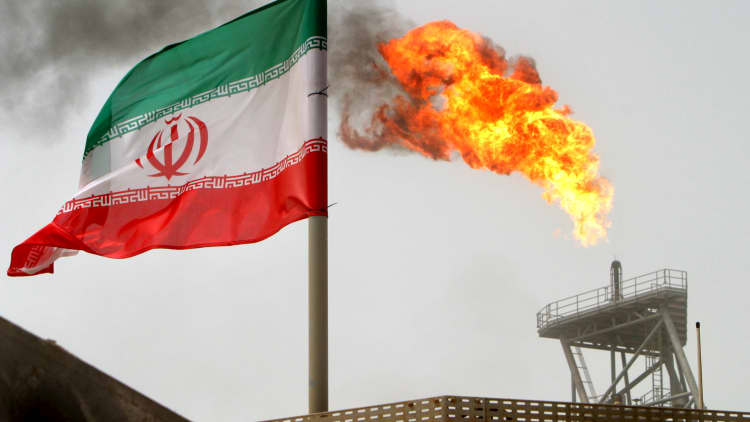
New sanctions the U.S. brought on Friday in response to Iranian ballistic missile tests won't undo a historic nuclear deal with Tehran by themselves — but the accord's odds of unraveling are rising.
Both the administration of President Donald Trump and the Iranian regime likely want to maintain the deal, which lifted sanctions on Iran in exchange for Tehran accepting limits on its nuclear program, analysts say. But rising tensions threaten to lead the two countries down a path of tit-for-tat provocations that ultimately makes the deal untenable.
"Trump's bully pulpit will meet Supreme Leader Ali Khamenei's pulpit. Iran uses a playbook a lot like Trump's — and that's incendiary," analysts for risk consultancy the Eurasia Group said in a research note on Thursday.
The U.S. Treasury Department fired the latest salvo on Friday, sanctioning 13 individuals and 12 other entities linked to Iran's ballistic missile program. That followed Iran's latest missile test earlier this week — also its first since Trump took office.
Friday's sanctions are consistent with actions taken by Presidents George W. Bush and Barack Obama, and their impact shouldn't be overstated, said Richard Nephew, who served as lead sanctions expert for U.S. negotiations with Iran.
Indeed, sanctions on individuals are far less provocative than the alternative: measures aimed at crippling Iran's economy.
Still, the Eurasia Group puts the Iran nuclear deal's chances of surviving at only 60 percent, and its analysts say those odds are declining after the White House's announcement on Tuesday that it is putting Iran "on notice."
That warning was vague and risks backfiring, according to Eurasia Group. The consultancy notes that Iran has a history of not backing down and will likely test Trump's will — perhaps by conducting another missile test sooner than planned.
Iran is not expressly prohibited from testing ballistic missiles per se. However, a United Nations resolution passed when the organization implemented the nuclear deal "calls upon Iran not to undertake any activity related to ballistic missiles designed to be capable of delivering nuclear weapons."

Reva Goujon, vice president of global analysis at Stratfor, said in a video briefing the language of the resolution "is squishy by design because the nuclear negotiators knew that Iran would be violating it anyway and wanted to keep that distinct from" the nuclear deal.
Goujon expects Trump and the Republican-controlled Congress to impose further sanctions on Iran, which will lead Tehran to repeat accusations that the United States is in violation of the nuclear deal.
That's potentially problematic for Iranian President Hassan Rouhani, who has an election this year. A moderate who has pushed to open Iran to the world, Rouhani would likely be forced to take a more aggressive stand for political reasons, analysts say.
Meanwhile, Trump has few options to regain an advantage over Iran, and his administration will likely rely on sanctions and military threats, Eurasia Group says.
If hardliners in the White House succeed in introducing "broad new economic sanctions," then Iran would likely withdraw from the nuclear deal, according to Eurasia Group.
The United States has grown sophisticated about sanctions after many years of applying pressure to Iran, said Nephew, now a senior research scholar at Columbia University's Center on Global Energy Policy.
"Any European or Asian bank that does business on behalf of (sanctioned Iranian entities) runs the risk of being cut off from the United States," he said.


